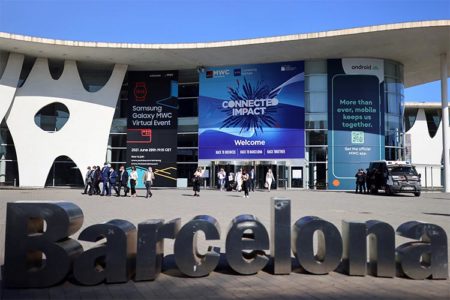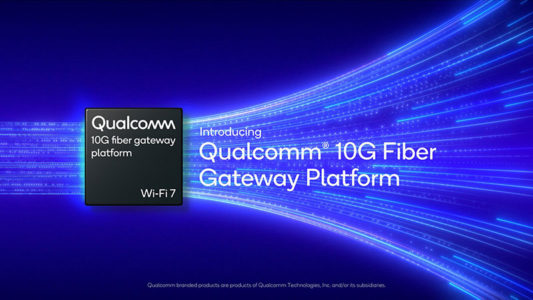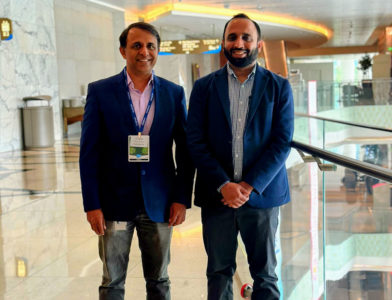India is on the path to be a major player in the global space economy.
The India Space Congress 2022 (ISC2022), to be held from 26-28 October at New Delhi, with the theme of “Leveraging Space to Power Next-Gen Communication and Businesses” focuses on celebrating the rise of the Indian space economy, and offering opportunities in the rapidly growing Space sector in India for worldwide space ecosystem.
Hosted for the first time by the SatCom Industry Association [SIA-India] under the dynamic leadership of Shri Anil Prakash, Director General, SIA-India, the ISC2022 will bring together noted industry experts, policymakers, thought leaders, start-up entrepreneurs and academia in the space sector to discuss an array of strategic insights, strategies, and themes underlining the rising Space economy in India and globally. CyberMedia Research (CMR) is a knowledge partner for the India Space Congress 2022.

SpaceTech has the potential to truly mobilize India’s economy. Whether it be optimized navigation or data analytics, enhanced Agritech or healthcare, SpaceTech applications have significant potential to socially and economically impact India.
While the Government of India remains the primary enabler of SpaceTech with proactive policy initiatives to foster the technology ecosystem, the academia and public sector together have contributed to many fundamental space technologies. The private sector brings in entrepreneurial and scientific know-how, strong business acumen, with access to capital and markets.
The Indian academia have provided a fertile incubation ecosystem and knowledge support for new SpaceTech entrepreneurs. Across the Indian institutes of higher learning, including the IIT Madras Research Park, the Birla Institute of Science and Technology, the Indian Institute of Science (IISc), or the IIIT Hyderabad, many new SpaceTech start-ups are emerging, and contributing to India’s SpaceTech story.
Indian SpaceTech startups, including Pixxel, Agnikul Cosmos, Bellatrix Aerospace, and Skyroot Aerospace, amongst others, are leveraging SpaceTech to answer some of the most pressing problems facing India and the world.
Over the course of the past fifty years, India’s national space program has contributed to India’s socio-economic development, satellite-based remote education, remote healthcare, agriculture support, and weather forecasting, among others.
In 2022, India’s space industry celebrated its fifty years since the Department of Space (DoS) was first established. At the vanguard of India’s rich space heritage with several remarkable achievements has been the Indian Space Research Organisation (ISRO).
It is in this background that the India Space Congress 2022 will address an array of strategic themes underpinning the rising space industry.
For instance, can a cross-disciplinary approach to innovation strengthen the space sector? What is the perspective of academic institutions of higher learning and spacetech incubators in India?
With the increasing investment trends in the commercial space market, what are the prospects for the short- to long-term future of the spacetech industry? What are the avenues for new spacetech entrepreneurs to seek investment?
With rising consumer demand, and rise of applications aimed at ensuring connectivity on the move in air, sea and land, satellite communication is emerging as key, including direct to handset. There are regulatory and technology issues around satellite connectivity.
Satellites have been the backbone of TV channel distribution worldwide, and much more significantly for the Indian TV and media industry. With the evolving landscape, the satellite operators have opportunities to offer new media solutions.
The collective efforts of all stakeholders in the space ecosystem is imperative to address the sustainability challenge. The role of international organisations such as the United Nations Office for Outer Space Affairs (UNOOSA) is critical to set equitable standards for the ease of activities.
When it comes to optimum utilisation of resources, increasing the safety and productivity of space missions, there is need for new stakeholders such as, the private sector to be involved.
As the space sector in India and globally grows manifold over the next few years, the pressing challenge would remain the accessibility and availability of specialized skills. How can academia, industry and policymakers address the skills challenge?
The upcoming ISC2022 provides an important avenue to discuss all of the above themes. Bringing together an array of stakeholders from India and from across the world, the ISC2022 will provide a positive impetus to the SpaceTech mission.
As a knowledge partner to the SIA-India, CyberMedia Research (CMR) will be highlighting key trends, insights and initiatives during the ISC2022, and beyond.













